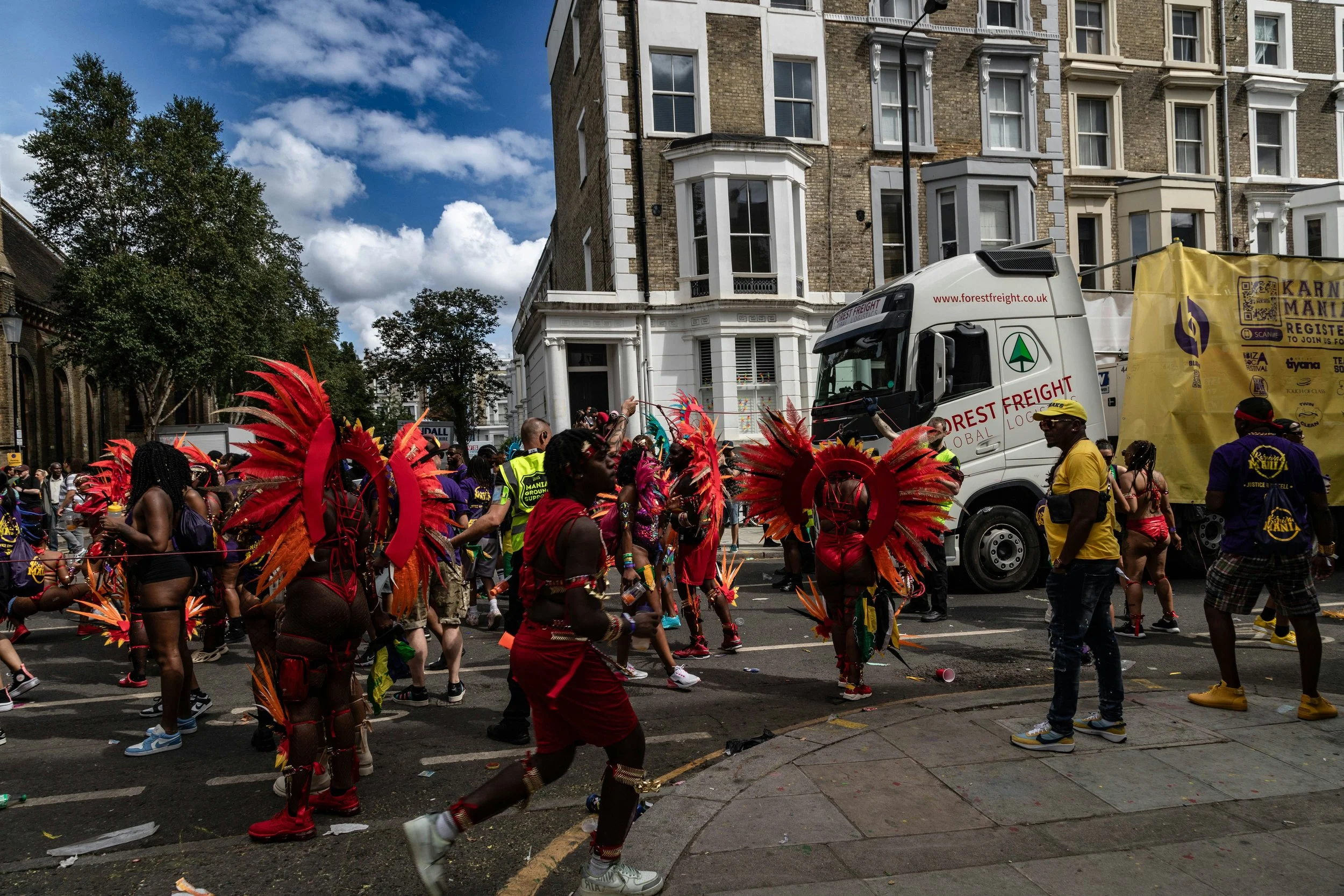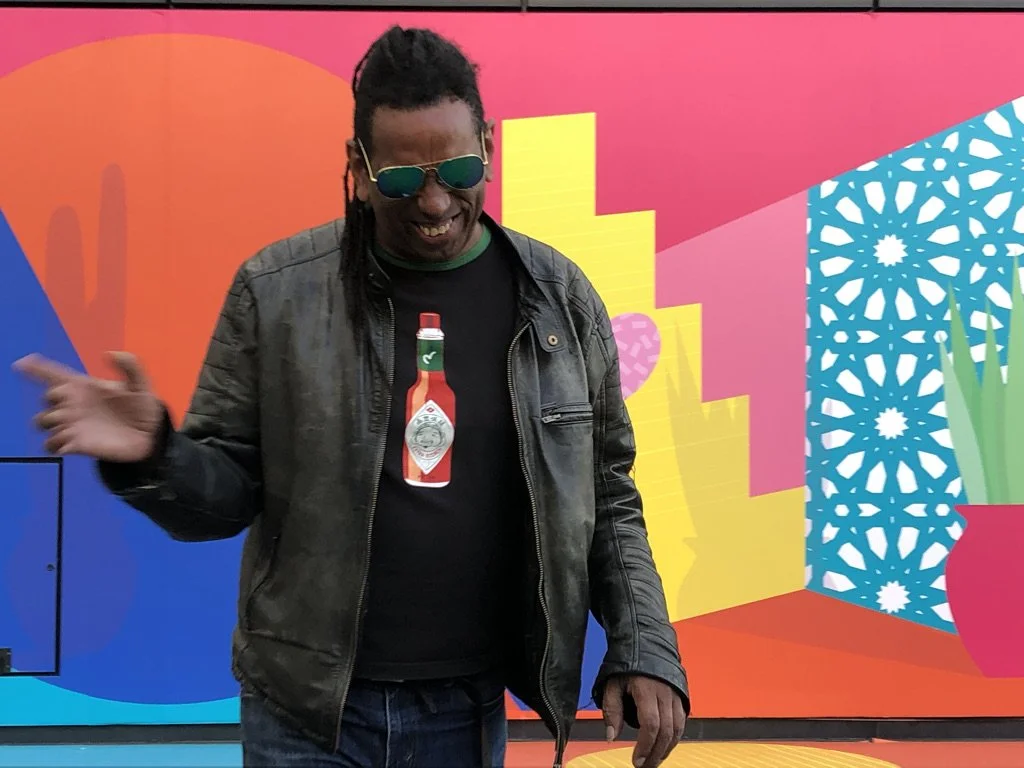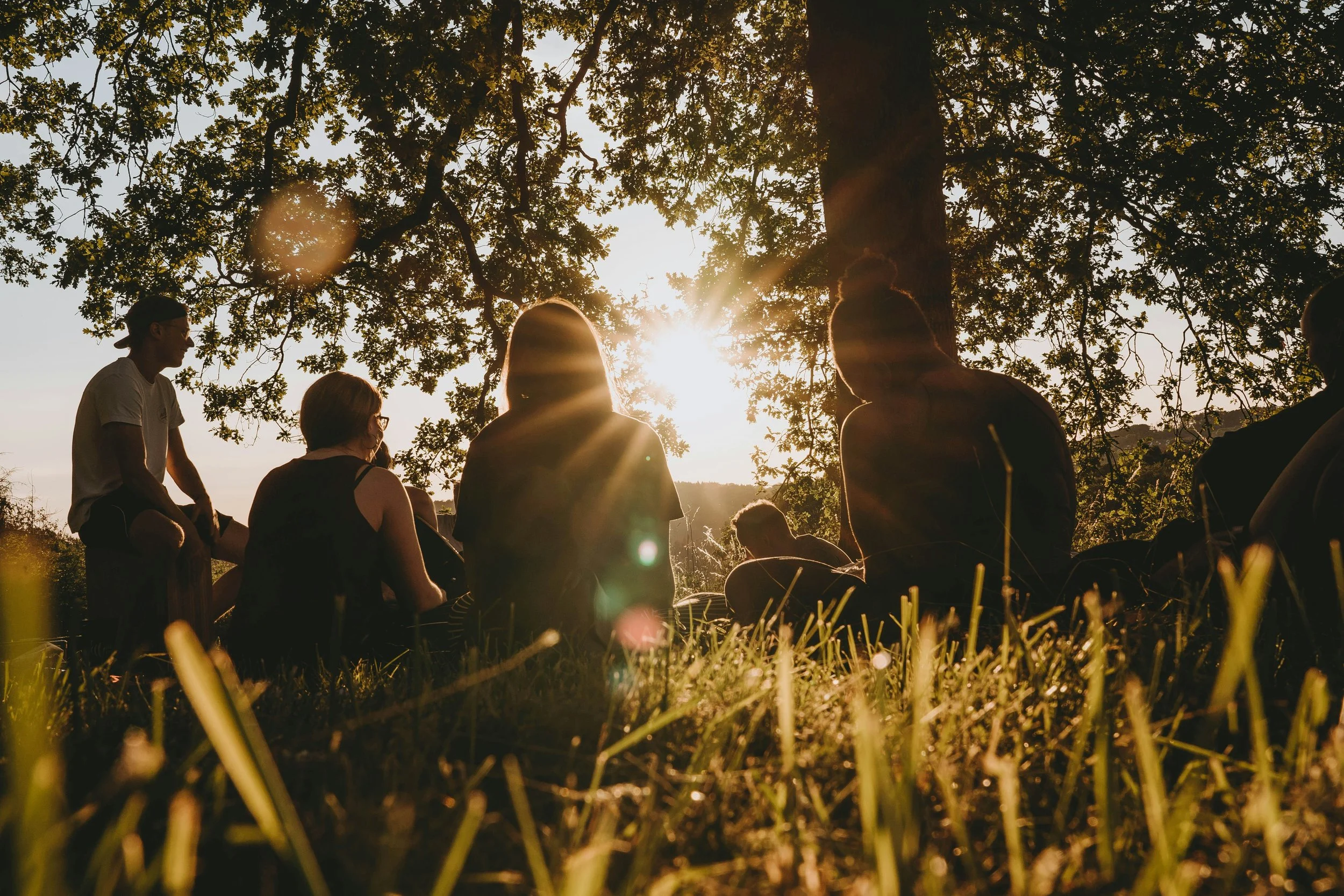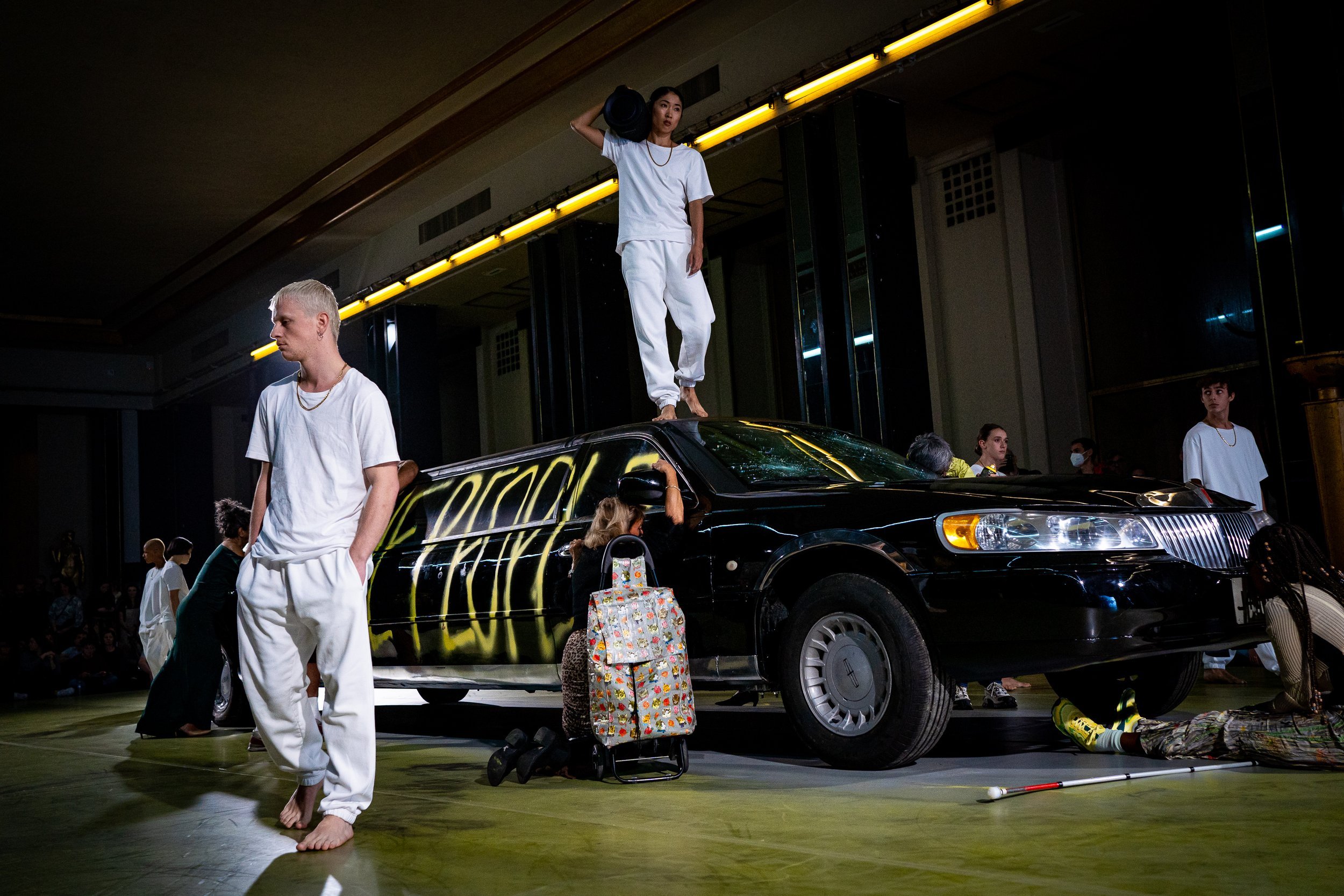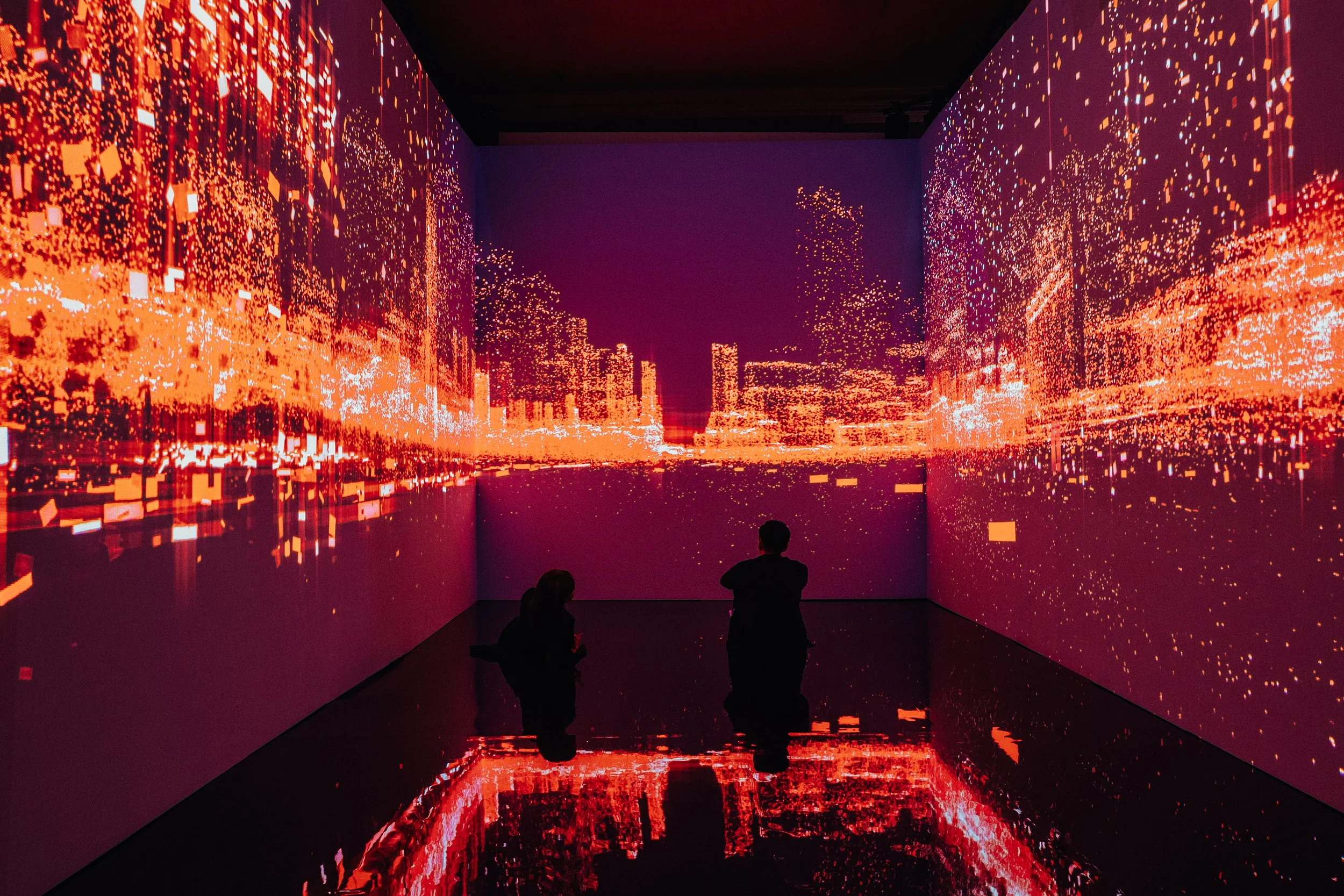Street portraits of London: the best techniques for capturing heartfelt photos
“Photography is about capturing souls, not smiles.” — Dragan Tapshanov
No matter how experienced you are as a photographer, asking a complete stranger to pose for a portrait can be intimidating. Many photographers agree that it’s a little more challenging than some other niches, as the reaction to this request is ultimately beyond their control.
Fortunately, the art of street portraiture isn’t confined to the super-confident. All it takes is a few minutes of extreme courage—especially on the bustling streets of London—and you’ve got an authentic, sincere shot.

Photography by Hanson Lu.
The art of street photography
Great portrait photography doesn’t depend solely on the photographer’s skill. It also depends on their ability to connect with their subject on a deeper level. This doesn’t mean having a heart-to-heart between shots. An authentic connection requires a level of vulnerability and trust, which becomes even harder to achieve when photographing strangers.
There isn’t any particular right or wrong way to approach street portraiture, but following these guidelines can improve your chances of capturing strangers’ likenesses.
Have courage
It’s intimidating to approach a complete stranger for many reasons, but asking to take their photo is another level of scary. There is no easy way through this anxiety. It’s a case of facing the fear and doing it anyway. Some street photographers snap candid portraits without a subject’s knowledge, but if you want a true street portrait, you must collaborate and connect with your model.
Be friendly - but don’t overdo it
Greeting someone with a smile is hugely important and gives a good first impression. But—and it’s a big but—don’t go overboard. Imagine if a stranger approached you with a manic smile; you would be more likely to avoid them. Friendliness has boundaries. Coming across as over-friendly makes people nervous, particularly in a city like London!
Tell them why
Tell your potential subject why you want to take their photo and how it will be used. This is an important factor, as your explanation assures them you have good intentions. Are you taking street portraits for fun? Are you a professional preparing for an exhibition? Being evasive will make people suspicious and reluctant to engage.
Don’t rush
Even if it's not rush hour, most people in London are in a rush, but you’re not doing yourself any favours by joining the mayhem. If you greet a potential subject in a calm manner, they’re more likely to take a breath and listen. Rushing up to someone can give the impression of being a bit desperate and threatening.
Someone might be in a hurry, but approach them gently, and you might get their attention for a moment or two.
But don’t dilly-dally
The flip side of the above. Yes, a relaxed approach is good, but don’t dawdle. Say “hi,” briefly introduce yourself, ask the question, and click the shutter. No matter how tempting it is, there’s no need to relate every detail about your passion for photography. An extended conversation is counterproductive when you’re working on bustling London roads.
You need to strike the perfect balance, although that’s easier said than done. This might take some practice, but through trial and error, it’ll become clear what ratio works.
Take a moment
As if the balancing act couldn’t get trickier… In between a smile, a brief introduction, and a motive for your request, take a second or two to study your subject. This serves more than one purpose.
Firstly, a moment’s pause should give you a better idea of how the interaction will play out. It takes some practice, but an experienced street photographer can compose an internal image of their ideal portrait in minimal time.
Secondly, this pause allows your subject to breathe. Put yourself in their shoes.
You’re in a hurry, and a random stranger asks to take your photograph. They seem friendly, genuine - and that project they’re working on sounds pretty interesting… but I’m running late…
This is the time for a moment’s silence. It doesn’t always work, but that minute window allows a potential subject to shift focus.
Engage
While you’re shooting, try to engage your subject. This aspect of street portraiture, or any portraiture for that matter, isn’t something you can calculate like your ISO or aperture, but it always produces better results.
Ask them where they’re going, what kind of day they’re having, and whether they live locally. There is a long list of questions you can use that can break the ice.
Getting them to open up, however briefly, can put them at ease and help you avoid dry, posed shots. If they smile, that’s fine, but let it come naturally. A smile certainly isn’t essential for an incredible portrait.
Pull it together
As you can see, there’s a lot more to street portraiture than picking out a good-looking stranger from the crowd. Shooting street portraits is an art that comes slowly. The ultimate aim is to capture an authentic image that conveys your subject’s personality and to photograph a moment of vulnerability beyond a random encounter.
Say thank you
This is an opportunity to show appreciation that goes beyond cursory thanks. If you’re using a DSLR camera or even a smartphone, show your subject their portrait on screen after you’ve taken it. You can offer to send them the photograph or give them your social media handles or online portrait portfolio URL. They can then find you if they choose to.

Photo by James Bold.
Don’t neglect your technique
As with all photography, there are a few basic elements to bear in mind. Apart from the usual composition, lighting, and colour, you need to pay attention to your rapidly changing “studio”, which, in this case, are the roads of one of the busiest cities in the world.
When it comes to photographic techniques, street portraiture demands a versatile and adaptable set of skills. It’s not a studio, so don’t treat it like one. You might have introduced yourself to the subject, but there isn’t enough time to pose them endlessly in the hope of getting the perfect shot.
Work with what you have: ambient lighting, architectural lines, and colourful pedestrians. You can’t go wrong with the classic rule of thirds, symmetry, incorporating diagonals, and the golden ratio.
Snap the perfect street portrait
It may sound trite but remember to enjoy yourself. A lack of enthusiasm is catchy, which doesn’t bode well for this type of photography.
Be genuine, be respectful, learn to adapt, and you’ll be on your way to some great street portraits.
Taking over the former Buvette site Parisian Bistrot style restaurant (which operated for just over two years), ZIMA has transformed the ambience while keeping the general layout. A few counter seats in the window overlook the lively street just off the infamous Portobello Road. A long marble bar runs the length of the narrow ground floor, lined with stools perfect for couples or solo diners…
August in London offers a wide mix of events and experiences, from outdoor cinema and live music to major festivals, family activities and new art installations. Here’s a round-up of what’s happening across the city this month…
Clive Lyttle is the Artistic Director of Certain Blacks, a new Arts Council England funded organisation. He has held senior roles at Arts Council England, including Head of Combined Arts for the South East, overseeing circus, outdoor arts, and major venues like The Roundhouse and Jacksons Lane…
The Italian Greyhound sits handsomely on the corner of Seymour Street and Seymour Place in an area sprinkled with high end restaurants like Anglo Thai and Basque restaurant Donosita. It is just here to be the neighbourhood restaurant we all need.
Departing from the usual art fair model of booths, Art Basel Qatar will focus on solo exhibitions by galleries, shaped by individual artistic visions. The fair is designed to create a more meaningful experience for visitors while spotlighting artists and galleries from the Middle East, North Africa, South Asia, and beyond…
To mark its 25th anniversary as one of London’s leading cultural institutions, Somerset House will throw open its doors on 13 and 14 September 2025 for Step Inside 25, a celebratory weekend of free interactive events, performances, exhibitions and workshops…
This week in London, experience the timeless ballet Giselle performed by the National Ballet of Japan and a powerful live show where poet Caleb Femi and musician Jordan Stephens blend words and beats. Explore experimental sound at Signals, groove to jazz at JAZZ RE:FEST 2025, and enjoy the orchestral magic of the BBC Proms…
Noreen, a newly opened Middle Eastern restaurant in St Christopher’s Place, offers a standout dining experience with bold flavours and beautifully presented dishes. Surrounded by the charm of cobbled streets, it’s a place worth seeking out…
Pippin’s is a new Modern British restaurant located within the recently opened Hotel Templeton Garden in Earl’s Court. Tucked away on a quiet, elegant street of Victorian terraces, the restaurant offers a refined dining experience in a peaceful yet well-connected part of London…
There’s so much happening in London this week, from outdoor exhibitions like Sculpture in the City and music highlights like BBC Proms and Somerset House Summer Series, to unique experiences such as the Lord Mayor’s Hot Air Balloon Regatta…
This September, the Southbank Centre presents We Should Have Never Walked On The Moon, a groundbreaking new collaboration between Rambert and Ballet national de Marseille, under the direction of (LA)HORDE…
London’s food scene is always evolving, and this July brings a fresh wave of exciting places to discover. With new restaurant openings, seasonal menus, chef collaborations, and a mix of relaxed terraces and late-night hotspots. Whether you’re craving modern British cuisine, Middle Eastern flavours, classic Italian…
Manchester International Festival got underway on Thursday (3 July), under the directive to ‘dream differently’, the Festival this year is set out to inspire fresh perspectives and challenge conventional thought.…
In 2026, London’s art scene will be defined by a series of compelling exhibitions celebrating pioneering female artists and influential creative voices. The Tate will lead with a programme featuring landmark shows, including a major survey of Tracey Emin, tracing four decades of…
The David Bowie Centre at V&A East Storehouse, opening on 13 September 2025, will bring visitors closer than ever to the life, work and creative vision of one of the most influential artists of modern times. More than 90,000 items from Bowie’s personal archive will be housed in the new centre…
Each summer, Henley-on-Thames plays host to the Henley Royal Regatta, an event that is as much a celebration of British sporting excellence as it is a fixture on the social calendar. Renowned worldwide for its rich heritage and competitive rowing, the regatta draws top crews and thousands of spectators…
Judith Clark is a curator and fashion exhibition-maker, and currently Professor of Fashion and Museology at the University of the Arts London. She lectures on the MA Fashion Curation and is a founding Director of the Centre for Fashion Curation. From 1997 to 2002, she ran London’s first experimental fashion gallery in Notting Hill…
The timing of this exhibition could not be better. At the end of a long winter, and egging on London’s reluctant spring, the Saatchi Gallery brings us FLOWERS in full bloom…
Missed out on Wimbledon 2025 tickets? Don’t worry – you can still enjoy the magic of this iconic British summer event right here in London. From 30 June to 13 July, big screens will be set up across the city, broadcasting all the live action from SW19…
The Royal Academy Summer Show has returned for its 257th exhibition. Curated under the theme of ‘Dialogues,’ the 2025 edition is coordinated by internationally acclaimed architect and Royal Academician Farshid Moussavi and explores art’s capacity to forge dialogues and build sensitivity towards societal concerns such as ecology, survival and living together…
Marylebone’s best-kept secret, Portman Square Garden, is once again set to bloom with life and laughter as Summer in the Square returns in July 2025. Now in its 11th year, this free community festival transforms the usually private garden into a lively…
The South London Gallery will open Thrill, Fill, Spill, a major solo exhibition by internationally acclaimed artist Yto Barrada, on 26 September 2025. Renowned for her cross-disciplinary practice that weaves together sculpture, textiles, film and painting…
Tate Modern will unveil Nigerian Modernism, the first major UK exhibition to chart the evolution of modern art in Nigeria. Opening in October 2025, the show will present more than 250 works by over 50 artists, exploring a rich period from colonial rule through independence and into the global present…
The South London Gallery will open Thrill, Fill, Spill, a major solo exhibition by internationally acclaimed artist Yto Barrada, on 26 September 2025. Renowned for her cross-disciplinary practice that weaves together sculpture, textiles, film and painting…
Oskar Zięta is an architect, process designer and artist whose work challenges the boundaries between disciplines. His practice brings together design, engineering, art and bionics to create sculptural forms. His latest installation, ‘Whispers’, is currently on display outside One New Ludgate as part of the London Festival of Architecture 2025…
The Park Corner Brasserie, running under the culinary leadership of Chefs Jean Didier and Anthony Marshall, who serve up refined British fare with seasonal flair from an attractive state of the art kitchen. The menu is delightfully diverse, satisfying everyone’s taste. From a juicy Park Corner Burger to a Dover Sole and even a Slow Cooked Barbary Duck Leg…
The London Design Biennale 2025 has officially opened at Somerset House, running from 5–29 June, bringing together over 40 pavilions from around the world in a bold celebration of global creativity. Now in its fifth edition, this year’s Biennale is curated by Artistic Director Dr Samuel Ross MBE, an award-winning British designer…
Danny Larsen is a Norwegian artist who has transitioned from a successful career in professional snowboarding to establishing himself as a distinctive painter. His detailed neo-pointillist landscapes reflect a deep connection to nature and a personal journey of transformation. Ahead of his debut London solo exhibition…
Renowned Chef Rohit Ghai and business partner Abhi Sangwan have joined forces to open Vatavaran, the newest luxury Indian dining destination in Knightsbridge last autumn, after launching Kutir and Manthan. Chef Ghai has also worked at acclaimed restaurants Benares, Trishna, Gymkhana and Jamavar…



